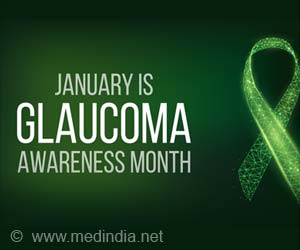- April is Women’s Eye Health and Safety Month
- Women are more prone to eye diseases and progressive blindness than men
- Women account for two-thirds of blindness and visual impairments
Why Women’s Eye Health and Safety?
April is observed as Women’s Eye Health and Safety Month, with concentrated efforts to focus on women’s eye care. Women are more prone to eye diseases and progressive blindness than men, and account for two-thirds of blindness and visual impairments. Approximately one-third of age-related macular degeneration and cataracts occur due to smoking. Hormonal changes and lifestyle habits like smoking and excessive alcohol can play a vital role in irreversible eye disease and damage. About 90% of blindness occurs in developing countries. Yet, almost 75% of blindness is preventable and this is why April is observed as Women’s Eye Health and Safety.Women’s Eye Health
Women generally manage the health of their families and more often than not tend to neglect their own health and well-being. Apart from concerns of chronic disorders like diabetes, hypertension and cardiac diseases, women are also prone to eye disorders. The National Eye Institute (NEI) seems to hold hormonal changes responsible for eye disorders in women. According to the NEI, 2.3 million American women suffer from visual impairment including blindness. Most women usually suffer from cataracts, glaucoma and diabetic retinopathy. Some of the causal factors for visual impairments in women include:- Pregnancy: Most women experience dry eyes and irritation during pregnancy. Pregnancy causes many changes in the eye. Eye puffiness and migraine are common and high blood pressure during pregnancy can cause blurred vision and even retinal detachment
- Menopause: Another stage related to the hormonal system is menopause causing changes in the eye. Most women experience dry eyes and uveitis or inflammation
- Birth control pills/HRT: Women taking birth control pills or hormone replacements experience dry eyes and inflammation along with increased risk of cataract. Stroke caused by HRT can also lead to vision issues
- Fertility drugs: Women who go in for fertility drugs experience spotted vision and in some case blurry eyes
- Breast cancer: Drugs used to treat breast cancer increase the risk of cataracts, itchy eyes and sensitivity to light and color
- Autoimmune disorders: Women are twice at a risk of autoimmune disorders like lupus, multiple sclerosis, arthritis, Behcets or Sjorgens. These disorders impact the tear glands causing dry eyes, itching, burning, irritation or even severe uveitis
- Quit smoking – the best thing you can do to avoid eye disorders
- Health diet – go for nutrients and specific vitamins like vitamin A to keep your eyes healthy. Add colorful veggies rich in beta-carotene to your diet like oranges, lemons, colored peppers, papaya, tomatoes and pumpkin. A dash of leafy greens full of Lutein and Zeaxanthin can help keep your eyes moist and prevent macular degeneration. Load up on spinach and other locally available greens. Nuts are of course evergreen when it comes to contributing to overall health. A handful of mixed nuts can keep your eyes healthy. Fish and fish oils rich in Omega-3 fatty acids are also helpful.
- Sun protection – take care of your eyes when you go out. Use protective sun glasses with UV filter
- Annual eye exams – is a must for women above 40 and for those with a history of diabetes in the family. See your doctor immediately if you experience dryness, itchy eyes, blurry eyes or double vision.
- Prevent eye infections – which can be picked up especially from your hands. Do not rub your eyes frequently. Keep your hands clean especially when you touch your eyes.
- Eye relaxation and exercises – if your occupation demands constant exposure to screens do remember to take a break and relax your eyes. Close your eyes every 20 minutes for about 5 min and relax. Ask your eye doctor for simple eye exercises.
Reference:
- Prevent Blindness Eye Health and Safety Observance Calendar - (http://www.preventblindness.org/prevent-blindness-eye-health-and-safety-observance-calendar)
- Women’s Eye Health and Safety Month - (https://nchph.org/women-eye-health/)
- April is Women’s Eye Health and Safety Month - (http://goldengateobgyn.org/april-is-womens-eye-health-and-safety-month/)
- Women’s Eye Health and Safety Month – April - (http://www.friendsforsight.org/resources/eye-health-awareness/item/63-women-s-eye-health-and-safety-month-april)
- Women's Eye Health Facts - (http://www.w-e-h.org/)
Source-Medindia















